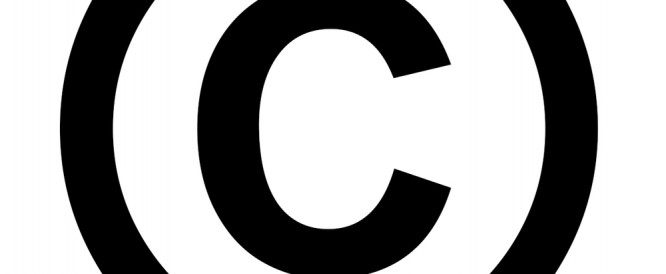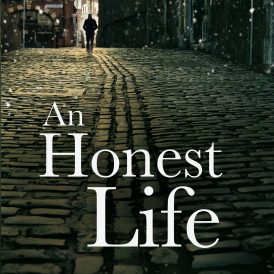One common concern among writers is the issue of copyright; both how to protect their own work and how to seek permission for other’s words in their work when the time comes.
We’ve put together some general information from a variety of sources to help you navigate this important area of writing and publishing.
What is the point of copyright?
Copyright provides a framework for trading in intellectual property. In practice it protects the author’s position and ensures that the publisher is able to take on the risk of publication in the knowledge that the publisher’s rights are protected. In effect authors, (the originators of intellectual property) sub-license their rights through their book contracts to different parties in individual territories and in specific forms.
This contractual provision safeguards the publisher’s position. It ensures publishers will sell the books they produce actively and also guard against any copyright infringement. In practice exclusive sub-licensing is the norm, so there should always be only one organisation, usually a publisher with text permissions, which has the right to grant permission.
Where pictures and photographs are concerned, the right to reproduce them may remain with the artist or photographer, but it is more usual for it to be handled through a picture agency.
Information on Securing Copyright Permission
The “Fair Dealing” Rule
• In the UK and EU, quoting for purposes of “criticism or review”, you may choose to utilize the “fair dealing” rule, enabling writers to quote more freely from texts. It is also worth noting that the 1988 Copyright Act (UK) does not specify a quantitative value with regard to the reproduction of copyrighted work. It only refers to the idea of the “substantial part” of a text
• The US code regarding fair use is generally accepted as permitting no more than 400 words from a book, or more than 50 words from a chapter in an anthology
Prose Extracts
• Prose extracts require permission when being reproduced for the purposes of:
» A single extract of more than 400 words
» A series of extracts, over 800 words, from a single publication
» A single extract, or a series of extracts, that totals more than one-quarter or more of an original work
Poetry
• Fair dealing regarding poetry differs to prose regulations. Small extracts from poems may be used “for the purposes of criticism and review”
• Limits on the amount of poetry you can freely quote do exist. The number of lines you can quote is determined by the length of the poem – you can quote no more than a quarter of its entire length. For a poem of 80 lines, for example, 20 lines can be used in your book. There is an upper limit of 40 lines
• The 1988 Copyright Act (UK) declares that permission must be sought when a “substantial” amount of material is used. “Substantial” can also relate to the recognizability of the author as well as the length of the extract. A single line of a Wordsworth or a Sassoon may need permission in order to be reproduced
You need permission to quote from works that are in copyright. The duration of copyright for most works is until 70 years after the end of the year of the author’s death. But there are a number of variations: e.g. the works of non-European authors, and, in some instances material that was unpublished at the time of the author’s death.
Revived Copyright: Until 1st January 1996, copyright lasted until 50 years from the end of the year of the author’s death – copyright was then extended to life plus 70 years. That means that some works which were out of copyright went back into ‘revived copyright’ on 1st January 1996.
If you want to quote from a revived copyright work (i.e. written by a European author who died between 1st January 1925 and 31st December 1944), you can do so without having to clear permission. You must, however, give the copyright holder (usually the author’s heir, but check on the WATCH website – www.watch-file.com) notice of what you intend to do, and you may have to pay a fee.
When do I need permission?
Anthologies: Permission should be obtained for the use of any quotation of copyright material, however short, to be included in an anthology.
Collections for use in schools: There are special provisions covering these in the Copyright Act. The Society can give information on request. E-mail to info@societyofauthors.org
Quotations for ‘purposes of criticism or review’: If the quotation can be regarded as ‘fair dealing … for purposes of criticism or review’ (a phrase not defined in the Copyright Act), whether of the work quoted or of another work, you need not ask permission, but must ensure that either in the text itself or in an acknowledgements page you give the title and the author of the work quoted.
It is not possible to give specific guidelines on what constitutes ‘fair dealing’; it is a matter of impression and common sense according to the circumstances. However, it may be relevant to take into account the following:
• the length and importance of the quotation(s)
the amount quoted in relation to your commentary
the extent to which your work competes with or rivals the work quoted
the extent to which works quoted are saving you work
The Society of Authors (The UK’s largest trade union for all types of writers, illustrators and literary translators) offers some additional guidance on this.
Firstly, it is important to note that fair dealing ‘only applies to work which has, with the authorisation of the copyright holder, been made available to the public.’ So, the work must be published first.
Although the law does not give strict parameters for what ‘fair dealing’ consitutes the Society of Authors provides some further guindance on how to interpret it:
• Does using the new work affect the market for the original work? If use of the new work acts as a substitute for the original, causing the owner to lose revenue, it is unlikely to be fair;
• Is the amount of the original which is being used reasonable and appropriate? Was it necessary to use the amount that was taken? Usually, only part of a work may be used.
To ensure due diligance, it is wise to seek permission to use any susstantial extract from a copyright work.
NOTE: The difficulty is that the meaning of ‘substantial’ is not defined. A short extract may be a vital part of the work and it has often been said that the test is much more about the quality than the quantity of what has been used. A few sentences taken from a long novel or biography are unlikely to constitute a ‘substantial’ part of the original work, but a few lines of poetry may be. The only safe course, if in doubt, is to ask permission if the quotation is not covered by the special schools exception or by fair dealing (see the notes above).
Who grants permission?
With published material, it is best to write first to the publishers of the original edition of the book, who are most likely to hold the rights for anthology use or quotations.
Address your letter to the Permissions Department.
If the original publishers do not control the rights, they will forward your letter to whoever does.
NOTE: It is very much in your interest to clear permissions as early as possible. You may be put in a difficult position if your book is about to go to press and permission is refused or fees are very high.
When contacting the rights holder for permission, be sure to include the following information:
The name, address and other contact details of the person or company to be invoiced
The name, address and other contact details of the individual to whom the formal letter should be sent (if different)
Details of the work in which the extract is to appear – author, title, publisher, territory required, edition/s (eg hardback, paperback, audio, electronic, website), estimated print quantity of each edition, course (for photocopying)
Details of the extract you wish to reproduce – author, title, number of words if prose, number of lines if poetry, language (if not English)
When sending a permission fee to an author or agent, be sure to state what it is for, giving the permission reference number (if relevant) or the source (title and author) of the extract and not just the name of the book in which it is to be used.
What if I can’t trace whoever is entitled to give permission?
This is always a headache and there are seldom any shortcuts. Here are a few suggestions of how to proceed:
First of all, check the WATCH website www.watch-file.com which lists an ever-increasing number of copyright holders or check with The Society of Authors (info@societyofauthors.org)
If the book you want to quote from was published by a firm no longer in existence, write to the publishers of another book by the same author; they may be able to tell you who owns the author’s copyrights.
In the case of unpublished works held in a library, the librarian will probably be able to put you in touch with the right person. If not, follow the procedure above. Failing that, there are special rules covering old unpublished works, including letters, kept in libraries, museums or other institutions, where they are open to public inspection.
They apply in cases where (i) more than 50 years have elapsed since the end of the calendar year in which the author died; and (ii) more than 100 years have elapsed since ‘the time, or the end of the period, at or during which the work was made’.
Where other methods of tracing copyright fail:
Consult the Will of the author. Where copyrights are not separately mentioned in a Will, they simply form part of the testator’s residuary Estate. For more information on tracing UK Wills, see the Family Records Centre website at www.familyrecords.gov.uk. Have a letter published in the Times Literary Supplement (this is often done by authors of literary biographies) or advertise in the TLS or other suitable paper.
Unpublished letters, in particular, often cause problems. The writer of the letter owns the copyright while the letter itself is owned by the recipient, or anyone to whom the letter may have been sold. If, however, the letters are privately owned, the owner may not know who owns the copyright in them.
What if I have made every possible enquiry and still cannot trace the copyright owner?
You have to decide whether to omit the extract, or to include it with the risk that the copyright owner will subsequently come forward and object.
NOTE: If you decide to take this risk, then you should state in the acknowledgements that every effort has been made to trace the copyright owner and that anyone claiming copyright should get in touch with you.
If you know who owns the copyright, but he or she does not answer your letters, a possible course is to send a registered or recorded delivery letter to the owner, explaining the situation and saying that if you hear nothing more within four weeks, you will assume that there is no objection to the extract being used. It should be emphasised, however, that this course is in no way supported by law and should only be used as a last resort.
In either of the above situations, where you decide to go ahead without permission, you should paraphrase as much as possible, keeping verbatim quotation to the minimum.
Useful links:
• WATCH (Writers Artists and Their Copyright Holders) www.watch-file.com
• Family Records Centre www.familyrecords.gov.uk/
• US Library of Congress Copyright Office www.loc.gov/copyright/
• Trace Line www.traceline.co.uk
• European Copyright User Platform (ECUP)
What is the permission for?
If you want to clear the use of copyright and get permission to use an extract or a picture in your book, the first thing to be clear about is exactly what you want. There is no point approaching the copyright holder without the specific information about the work you want to use.
Next you will need to know precisely how you propose to use it. Permissions grantors will need to know the title and author of the work for which the passage or picture is intended. They will want to know the format (hardback or paperback) and the intended print-run. If your book is to be made available using Print on Demand you will have to guess the first year’s printing.
The reason they want this information is that they might grant the use inside the text but withhold approval if you plan to put a quote on the cover or associate their copy with something of which they do not approve. Some kinds of use will also cost more.
Finding the rights-holder
Tracking down the rights-holder can prove difficult. If you are talking about an extract from a book, the best place to start is by writing to the publisher with the above information. Address your letter to the Rights Department, which generally handles permissions. The address of the publisher should be at the front of any book or journal and inside every newspaper.
Publishers usually handle the right to grant permission to use material and tend to have an established procedure for dealing with permissions. In some cases the author’s agent, or even the author directly, will control these rights, particularly if the title is now out of print and the rights have reverted to the author. If this is the case, the publisher should supply contact information.
The Copyright Clearance Centre Inc www.copyright.com, an American not-for-profit organisation which manages rights relating to 1.75 million works, is also useful if you are trying to clear permissions or track down rights-holders in America.
Which territories?
The other thing you have to consider before writing to ask for permission is which territories you are looking for. This depends where you are intending your book to be published and sold. If you are intending it to be published worldwide in the English language, then you will need to ask for ‘world English language’ rights.
Translated editions
If you think your book might be translated, then you are looking for translation rights too, so you should say ‘in all languages’. But the right to grant permissions is usually linked in to what are called ‘volume rights’. This means, for instance, that, if there is a German publisher for the book, they will have volume rights in the German language. You will have to find out who it is and contact them directly to clear the permission for the German edition too. Bear in mind that ‘in all languages’ will cost more, so you should only do this if it’s necessary.
Permission fees
Since permissions can be expensive and time-consuming to clear, it is worth thinking this through carefully in the first place and asking for exactly what you want. It is usual to charge half the fee for critical or scholarly works with low print runs so, if your work falls into one of these areas, you should make this clear. The publisher will come back to you quoting a fee.
The Publishers Association of the UK suggests the following guidelines for permission fees:
• • £120-£146 per thousand words for world rights
• • British Commonwealth or US only – half of world fee
• • Major individual countries – quarter of world fee
• • US plus Canada; EU – two-thirds of world fee
• • Australasia; Japan – one-third of world fee.
• • American publishers may well charge more.
Minimum fees
Permission to use passages of less than around 250 words is usually granted free, although publishers may make a minimum charge of between £30 and £50 to offset the cost of processing small permissions.
Important Notes to Remember
- If you have difficulty tracking down the rights-holder and do not in the end manage to do so, it may be important later to be able to prove that you did try, so you should keep copies of all correspondence.
- Make sure that any acknowledgements required by the copyright owners are added to your book in the preliminary pages – your publisher will assist with this.
- Don’t underestimate how long it takes to clear permissions. You will often get a slow answer and may then be referred on to someone else, so allow plenty of time to get everything sorted out.
From: www.writersservices.com; www.sussex-academic.co.uk; www.societyofauthors.org.
Happy Writing,
#TLP
Other articles you might like…
Setting up a bookclub? Read our guide to how to start one.
Writing a novel? Check out our library of writing resources.
Honing your craft? Check out our favourite writing books.
Practicing your skills? Try out our general writing exercises.
Submitting your novel? Check out our Dos and Don’ts.
Don’t just take our advice. Check out Orwell’s Rules for Writers.
Just starting out? Read our advice for new writers.
Join our mailing list:


